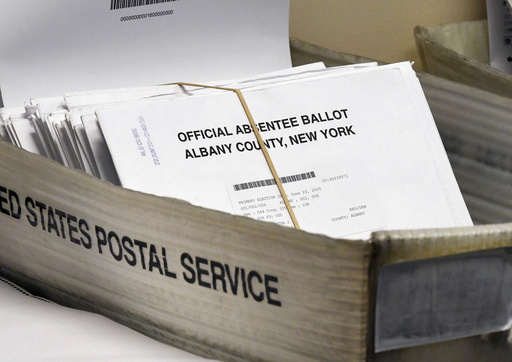In Albany, New York, the highest court of the state recently heard arguments from Republicans challenging a law that permits any registered voter to submit a mail-in ballot during the early voting window. Led by Rep. Elise Stefanik along with other lawmakers and the Republican National Committee, the case is part of a broader effort within the GOP to reinforce voting regulations following the 2020 election. On the opposing side, Democrats had signed off on the expansion of mail voting last year. The crux of the Republican challenge is the accusation that the law breaches voting regulations outlined in the state’s Constitution.
During the hour-long hearing at the New York Court of Appeals in Albany, discussions primarily revolved around interpreting the Constitution in technical terms. The focus was on whether certain sections of the Constitution permitted the state Legislature to enhance access to mail voting. Notably, judges raised queries on whether the provision stating that eligible voters have the right to vote “at every election” implied voting at a physical polling station or simply participating in the election process in general.
Michael Y. Hawrylchak, representing the Republicans, contended that the provision implied a necessity for a physical voting location for in-person voting. On the other side, Deputy Solicitor General Jeffrey W. Lang, speaking for the state, interpreted the phrase as merely referencing the process of electing an office holder, without specifically mentioning a physical voting site.
Prior to this legal battle, Democrats had attempted to broaden mail-in voting through a constitutional amendment in 2021. However, the proposal was turned down by voters following a conservative campaign that claimed it could result in voter fraud. Lower courts had previously dismissed the Republican lawsuit, asserting that according to the Constitution, the Legislature possesses the authority to establish regulations concerning voting, without a concrete mandate for in-person voting on election day.
As of now, there is no clarity on when a verdict can be expected from the Court of Appeals.



